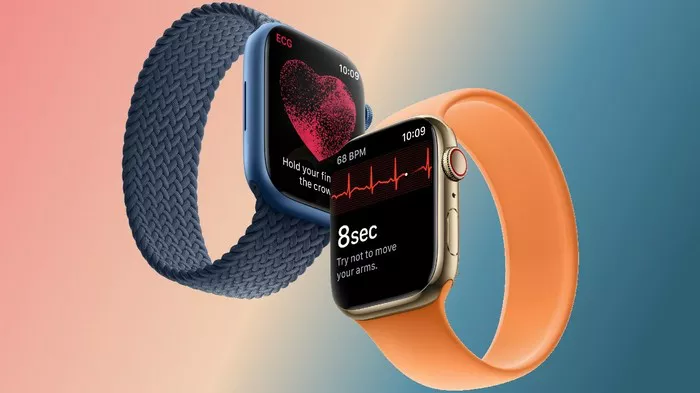In the rapidly evolving world of technology, Apple has been at the forefront of innovation with its versatile lineup of smart devices. One such device, the Apple Watch, has seen tremendous advancements in functionality and design since its inception. For users who own multiple Apple Watches, connecting and managing these devices through a single iPhone can be an appealing feature. This article provides a detailed, step-by-step guide on how to connect two or more Apple Watches to a single iPhone, addressing common questions, potential issues, and best practices.
Understanding Apple Watch Pairing
Before diving into the specifics of connecting multiple Apple Watches to one iPhone, it is essential to understand the basic concept of pairing. Pairing is the process of establishing a connection between your Apple Watch and iPhone, allowing them to sync data and work together seamlessly.
Pairing Process: The pairing process involves placing your Apple Watch near your iPhone and using the Apple Watch app on your iPhone to complete the connection. The iPhone communicates with the Apple Watch via Bluetooth and Wi-Fi, allowing it to transfer data and settings.
Can You Connect Two Apple Watches to One iPhone?
Yes, you can connect multiple Apple Watches to a single iPhone. However, it is important to note that while you can pair multiple watches with one iPhone, you can only use one Apple Watch at a time. Here’s a detailed guide on how to do it:
Step-by-Step Guide to Pairing Multiple Apple Watches
1. Prepare Your iPhone
Update iOS: Ensure your iPhone is running the latest version of iOS. Updates often include new features and bug fixes that can improve the pairing process.
Check Compatibility: Verify that your iPhone is compatible with the Apple Watch models you intend to pair. Generally, iPhone 6s or later is required for Apple Watch Series 1 and later.
2. Prepare Your Apple Watches
Charge Your Watches: Make sure both Apple Watches are fully charged before starting the pairing process.
Reset Watches: If the Apple Watches were previously paired with other devices, reset them to their factory settings. Go to Settings > General > Reset > Erase All Content and Settings on the watch.
3. Pair the First Apple Watch
Open the Apple Watch App: On your iPhone, open the Apple Watch app.
Start Pairing: Tap on “Start Pairing” on the iPhone.
Align the Watch: Place your Apple Watch in front of your iPhone’s camera, aligning it with the viewfinder on the screen.
Follow Instructions: Follow the on-screen instructions to complete the pairing process. This includes setting up preferences, creating a passcode, and choosing settings.
4. Pair the Second Apple Watch
Open the Apple Watch App: Again, open the Apple Watch app on your iPhone.
Tap on “My Watch”: Tap on “My Watch” at the bottom of the screen.
Add Watch: Tap on “Add Watch” and then “Pair New Watch.”
Repeat Pairing Process: Follow the same steps as with the first watch to pair the second Apple Watch.
5. Switching Between Watches
Select Active Watch: You can only use one Apple Watch at a time. To switch between watches, ensure the watch you want to use is charged and near your iPhone. The iPhone will automatically connect to the last used watch.
Manage Watches: In the Apple Watch app, you can manage and configure settings for each paired watch.
See Also: Can You Set Up An Apple Watch With An Ipad
Managing Multiple Apple Watches
1. Watch Notifications
Configure Notifications: Notifications are synced based on the currently active watch. Ensure that your notifications are set up correctly for each watch in the Apple Watch app under Notifications.
2. App and Data Syncing
Syncing Apps: Apps on your Apple Watch will sync with the iPhone based on which watch is currently active. If you install an app on one watch, it may not be automatically available on the other.
Health and Fitness Data: Health and fitness data are synced to your iPhone and shared between paired watches. Ensure that data privacy settings are configured as desired.
3. Battery Management
Monitor Battery: Keep track of the battery life of each Apple Watch. You can check battery status in the Apple Watch app under Battery.
Charging Schedule: To maximize battery life, establish a charging routine that ensures each watch is fully charged before use.
Troubleshooting Common Issues
1. Pairing Issues
Reset Network Settings: If you encounter pairing issues, try resetting your iPhone’s network settings. Go to Settings > General > Reset > Reset Network Settings.
Reboot Devices: Restart both your iPhone and Apple Watches to resolve connectivity problems.
2. Syncing Problems
Check Bluetooth and Wi-Fi: Ensure that Bluetooth and Wi-Fi are enabled on your iPhone. Go to Settings > Bluetooth and Settings > Wi-Fi.
Update Software: Make sure both your iPhone and Apple Watches have the latest software updates installed.
Best Practices for Using Multiple Apple Watches
1. Regular Updates
Update Software: Keep both your iPhone and Apple Watches updated with the latest software to ensure compatibility and access to new features.
2. Backup Data
Backup Regularly: Regularly back up your iPhone to iCloud or iTunes to safeguard your Apple Watch data. This ensures that your settings and information are preserved.
3. Manage Storage
Monitor Storage: Keep an eye on the storage available on each Apple Watch. Remove apps or data that are not frequently used to free up space.
Conclusion
Connecting and managing multiple Apple Watches with a single iPhone offers enhanced flexibility and customization for users. By following the steps outlined in this guide, you can seamlessly pair and switch between different Apple Watches while ensuring that your notifications, apps, and data are properly synced. With regular updates, proper battery management, and effective troubleshooting, you can make the most of your Apple Watch experience.

